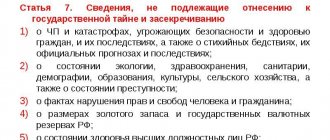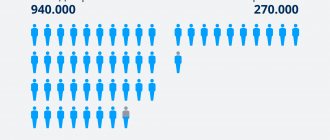Today in Russia about 750,000 people work in the police. Many people have heard that police officers have good salaries, pensions, benefits and various government support options. The position of a police officer is a budget-funded one, so the financial support of this specialist really falls entirely on the shoulders of the state. This leads to the fact that there are no delays in the payment of wages, and the very schemes by which wages are calculated have been tested by many years of practice.
Professional Responsibilities
Everyone has a chance to get a job in the Ministry of Internal Affairs, regardless of gender and education. However, to obtain a police position, several conditions are required. First of all, this is the absence of a criminal record, both for the job applicant and for his close relatives. In addition, you must provide your written consent to verify your personal data.
Police candidates will have to undergo a serious medical examination, since an absolutely healthy person must work in law enforcement agencies. Moreover, in addition to good indicators of physical health, he must have good mental health. Therefore, an applicant for the position of police officer will have to undergo psychological testing. And also provide a certificate from specialists about the absence of drug addiction and sexually transmitted infections.
Police Officer Jobs in the USA
In America there is no clear distinction between positions and, accordingly, responsibilities. A citizen who has violated traffic rules can be arrested not only by an employee keeping order on the road, but also by a detective performing a completely different task. In the USA, in principle, there are a lot of police officers, a considerable part of whom are women.
Gradation by type of service
- sheriff - responsible for a specific small town or village, heads the police station located there;
- druzhinnik is an analogue of Russian druzhinnik, but with some differences, which consist mainly in the fact that American volunteers from society pay their debt to the state voluntarily and with great hopes for the future (the druzhinnik has a real chance to become a detective, to enter the Police Academy with great concessions) ;
- Federal Police (the most prestigious type of service)
- state police (employees of this department deal with minor crimes that occur in the territory under their control);
- city police;
- SWAT - special forces (an elite unit designed to conduct combat operations, free hostages, arrest large drug dealers, gangs).
There are also the morality police, the Texas Rangers. The vigilantes are not paid, but are given a uniform and provided with a car.
A police officer can serve in one of the following positions:
- officer (an initial rank with a minimum salary, assigned to all newcomers who have the necessary education and pass a difficult test);
- detective (assigned after 3 years of service);
- sergeant (the rank of sergeant can also be obtained after 3 years of work in the police);
- lieutenant;
- captain;
- police inspector;
- chief of police;
- Commissioner.
All titles/positions are awarded based on knowledge and work experience. A special, complex compliance test plays a decisive role in future promotions. It is fashionable to take it once every 3 years. But only 5% of police officers manage to do this successfully, so generally few rise to the rank of inspector or chief of police.
At the same time, this does not affect the salary as much as it seems, it is high, more than 100-200 thousand dollars, it is only for the chief, his deputies and the commissioner. The rest have a little higher/lower than 40-80 thousand dollars.
Small wages by American standards are compensated by medical insurance not only for the police officer himself, but also for his family members. The insurance covers all types of medical services.
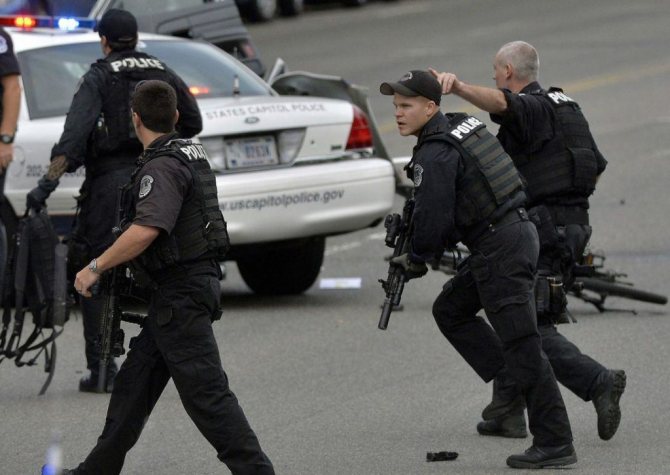
Salary depending on position and department
Salary depends on the position and department. A patrolman receives about 30-40 thousand a year, but a detective can already claim 60-80 and even 120 thousand dollars.
Federal police officers earn more than sheriffs or city police officers. For the chief of police and commissioner, the salary ranges from 100-150 or 200-250 thousand, it depends on experience, success in passing the exam and staff.
What does salary depend on?
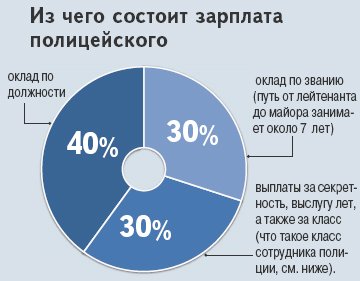
To understand how much police officers in the Russian Federation receive, you need to understand what makes up the income of law enforcement officers:
- Base rate. When they talk about increasing wages, this indicator is meant. It is indexed, and for the most part additional payments are calculated from it;
- Allowance for risks associated with performing professional duties, overtime, difficult working conditions, etc. In each region, additional payments are assigned depending on local conditions: the criminal situation, budget capabilities;
- Regional coefficient. Each region has its own indicators for rewarding law enforcement officials. As an example, we can cite the Northern and Ural coefficients;
- Long service bonus. A single coefficient is applied in all regions;
- Bonus for rank. Only the base rate remains unchanged and is set at the federal level. Everything else depends on various factors.
Only the base rate remains unchanged and is set at the federal level. Everything else depends on various factors.
What affects a police officer's salary?
The profession of a police officer is always in demand in the labor market. Today in Russia there are more than 2,500 places available for law enforcement specialists. This situation can be explained by the fact that wages for such complex and responsible work remain low. Although in recent years, police salaries have increased significantly.
It should be noted that the salary of police officers consists of the official salary and an allowance for rank. In turn, the salary amount is determined by the following indicators:
Job title
So the salary of ordinary police officers is 9.5-12 thousand rubles. The salary of a senior detective is 15-17 thousand rubles. per month. The head of the department has a salary in the range of 20-24 thousand rubles. When the salary of the Minister of Internal Affairs of the Russian Federation is 75 thousand rubles.
Region of residence and service
The salaries of police officers living in the capital region are higher than those of colleagues from other regions of Russia. The difference between different categories of police officers can range from 1-2 thousand rubles. for ordinary personnel and 2-4 thousand rubles. among middle management.
Length of service
The amount of salary for law enforcement officers is influenced by the amount of special experience, i.e. length of service. Thus, a police officer who has served in the authorities for 2 to 5 years increases his salary by 10%. If his length of service is 5-10 years, then the salary increases by 15%. Special experience from 10 to 15 years gives an increase of 20%. A police officer with 15-20 years of service receives a monthly 30% increase, and a police officer with more than 25 years of service receives a 40% increase in salary.
Special conditions of service
This kind of allowance is established by the heads of federal executive authorities and can reach 100% of the official salary of a police officer.
For work with information constituting state secrets
This premium is determined by the level of secrecy and can reach 65%.
The amount of the rank allowance for an ordinary police officer is 4,750 rubles, for a police officer with the rank of sergeant , 5,225 rubles. sergeant receives an allowance of 5,500 rubles, a senior sergeant - 5,750 rubles, a foreman - 6,000 rubles, a junior lieutenant - 6,750 rubles. The most significant allowances for police officers with the rank of general are 20 thousand rubles.

Average salary of a police officer
As for earnings in Russian regions, the average salary of police officers in Russia is 40,000 rubles. It is highest in Kamchatka, about 73,500 rubles. Further across the country, police salaries are distributed as follows:
- Arkhangelsk 60,000 rubles
- Moscow and Moscow region 55,000 rubles
- Irkutsk 51,300 rubles
- Krasnodar 45,000 rubles
- Ivanovo 45,000 rubles
- Vladimir 45,000 rubles
- Penza 43,000 rubles
- St. Petersburg 40,000 rubles
- Nenets Autonomous Okrug 38,830 rubles
As this table shows, the highest salary levels for police officers, as always, are in the capital, in the north and in the eastern regions of the country. The central part of Russia traditionally lags behind in this indicator.
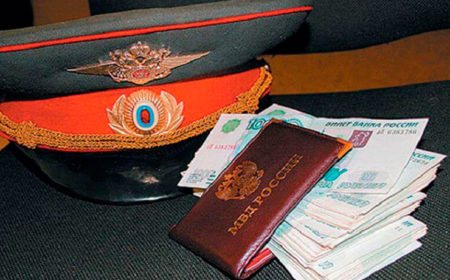
There are still not enough police officers
Despite the increase in the number of employees of the Ministry of Internal Affairs, their staff in Russia continues to be understaffed. On average, the country is 6.6% short of the coveted staffing level of 100%, and over 3 years this figure has decreased by almost 1%. Things are best in Chechnya (almost 99.9%), which is not surprising due to the increase in the number of police officers in this region over the past 3 years (see above), Karachay-Cherkessia (98.8%) and the Nenets Autonomous Okrug.
In the Volga Federal District, the internal affairs bodies of Chuvashia (here there are not enough 4.2% of employees to close all the gaps), Kirov (95.7% staffed) and Samara regions (95.1%) may be less likely to chase new personnel. In Tatarstan, in this sense, not all is well; since 2014, staffing levels have decreased by 2.4%, amounting to 92.4%. This is below the national average. In the Volga Federal District, things are worse only in the Nizhny Novgorod region (91.6%). However, despite the huge staff of employees of the Ministry of Internal Affairs in Moscow, the Moscow region and St. Petersburg (see above), judging by the staffing indicators (91.4%, 91.2% and 89.9%, respectively), it should still be more.
The record holder for improving the situation - which also explains the above-mentioned increase in the number of police officers in this region - is Sakhalin: 3 years ago the staffing level here was only 37.4% (!), and by 2021 this figure was increased to 88.5% .
Ratio of the actual number of employees of the Ministry of Internal Affairs to the staffing level, %
| Region | 2014 | 2015 | 2016 | 2017 |
| Chechen Republic | 98,9 | 99,5 | 99,8 | 99,9 |
| Karachay-Cherkess Republic | 98,7 | 96,1 | 98,2 | 98,8 |
| Nenets Autonomous Okrug | 94,8 | 94,8 | 94,4 | 98,4 |
| The Republic of Khakassia | 98,8 | 98,8 | 97,1 | 97,8 |
| Oryol Region | 98,0 | 97,4 | 100,7 | 97 |
| Republic of Kalmykia | 90,9 | 100,2 | 98,8 | 96,7 |
| Altai Republic | 93,9 | 95,4 | 96,3 | 96,5 |
| Yaroslavl region | 98,2 | 98,0 | 90,1 | 96,4 |
| The Republic of Ingushetia | 97,5 | 98,5 | 96,2 | 96,2 |
Allowances
Until recently, the minimum wage for a police officer in Moscow was about 40 thousand rubles.
In Moscow, police officers have increased the minimum amount of bonuses for special risks, stress and difficult service conditions.
Workers who serve in high-risk conditions receive an additional payment of up to 60%. This applies to active detectives from the criminal investigation department, from the departments of personal and economic security, private security officers, soldiers and riot police. Dog handlers receive only a 20 percent salary subsidy.
Other countries
Japanese are the highest paid . Their average monthly income is 601,500 yen, or 433,000 rubles. Compare with the salaries of their colleagues from other Asian countries:
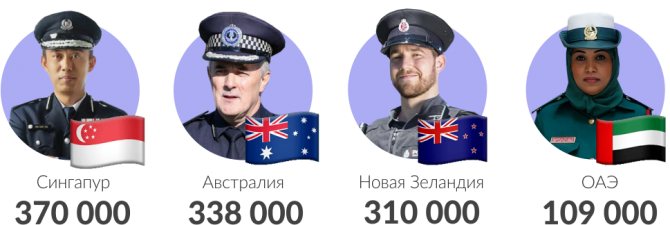
In most European and developed Asian countries, police salaries are above average. For example, a French officer receives 5,600 euros with the average salary in the country being 2,169 euros. In Russia and Ukraine there is no such difference in wages for police officers and other specialties. It seems that in post-Soviet states people join the police not only for money.
The author of this article will be grateful if you like our Facebook group.
Did you like the article? Rate it and tell your friends
Additional benefits for police officers
Employees also have every right to certain benefits and guarantees of social protection. The full list of benefits available to police officers is specified in the Law “On the Police”:
- the life and health of a police officer are insured annually at the expense of the state;
- relatives who are dependent on a police officer receive insurance payments in the event of death or severe injury of the latter during the period of duty;
- police officers have the right to free medical care in medical organizations of the Ministry of Internal Affairs, to free medications with a doctor’s prescription, as well as free dentures and the manufacture of dentures themselves (but not from precious metals);
- police officers and members of their families have the right to sanatorium and resort services in departmental sanatoriums at a discount; police officers who become disabled in the service are treated in sanatoriums free of charge, including those who are retired;
- if certain conditions are met, police officers receive official housing or a subsidy for the purchase of housing property;
- When on duty, police officers have the right to use all types of public transport (except taxis) free of charge upon presentation of their identification; at other times they can use free travel passes;
- police officers working in the Far East, the Urals, the Far North and Siberia have the right once a year, together with one relative, to travel to a vacation spot in the Russian Federation and back at state expense;
- Police officers also have certain tax benefits (property).
Additional bonuses and benefits
Federal law provides for the following benefits for police officers:
- the possibility of free travel on all types of public transport, with the exception of taxis, with an official ID when performing official duties;
- free travel to and from your holiday destination once a year;
- free treatment and prevention in departmental health institutions;
- children of police officers receive places in kindergartens, boarding schools, and summer health camps out of turn;
- in the case of official business trips, the police officer has the right to make emergency reservations and accommodation in hotels, as well as to purchase tickets for all types of transport.
How much do police officers earn on average abroad?
Surely you have a question: “How much do police officers earn on average abroad?” It depends on the specific country and the standard of living and social security in it. Let's try to understand this issue in more detail.
In America, the profession of a police officer is considered one of the most prestigious and fairly highly paid. The average salary of a police officer in the USA ranges from 2,349,200 to 4,111,100 rubles per year in terms of our money. Using simple mathematical calculations, it turns out from 195,66 to 342,591 rubles per month, which is at least 3–4 times more than in Russia. In addition, the police here have a lot of powers, they are right in any case and at the slightest resistance they can open fire. There are a lot of cops on the streets of American cities, but if you behave appropriately and don't break anything, they won't bother you.
But if you encounter police officers, do not make sudden movements and strictly follow all their instructions. For example, if your car is stopped, do not under any circumstances try to get out of it, but simply put your hands on the steering wheel and listen to the instructions of the patrol officers.
How much does a police officer earn in Russia?
The salaries of police officers are clearly regulated, therefore, a police officer will not receive an increase in earnings by simply changing his place of work in one police station to work in another.
Minor changes will affect only parts of the salary for a position if, for example, a district police officer from a rural settlement is transferred to Moscow or a city with a million population.
Average salary of a police officer in Russia
If we sum up all the allowances, then an investigator with up to 5 years of experience will receive an average of 40 thousand rubles. And the head of a department with the rank of colonel and with 25 years of experience, with the highest security clearance and with the category of master, earns on average 92 thousand rubles per month, not counting bonuses.
These numbers may increase if the employee is on a business trip or involved in special operations.
Salaries of teaching staff
For ordinary and junior personnel, part of the salary for the position is calculated according to other territorial criteria:
| Job title | In Moscow and Moscow Region, St. Petersburg and Leningrad Region, in rubles | In a subject with a population of >100 thousand people, in rubles | In other regions, in rubles |
| Police officer | 14 101 | 11 932 | 9763 |
| Senior police officer | 14 644 | 12 474 | 10305 |
| Sub-Inspector | 15 186 | 13 017 | 10 847 |
| Deputy Platoon Leader | 15 728 | 13 559 | 11 390 |
Employees of the Police Patrol Service (PPSP) belong to the junior and rank and file of the Ministry of Internal Affairs.
The total income of a patrol officer with no experience who has just gotten a job starts at 18 thousand rubles. A senior police officer with more than 25 years of experience, who has reached the rank of warrant officer and has the qualifications of a master, receives from 42,900 rubles.
How much does a police captain make?
For the rank of police captain they pay 11,932 rubles. For example, an investigator for particularly important cases with 10 years of experience, a first-class specialist, earns 72 thousand rubles or more.
How much does a police major earn?
The salary for the special rank of major is 12,474 rubles. For example, a department head with 15 years of experience and a master’s qualification with a “top secret” clearance receives 76 thousand or more.
How much does a police lieutenant make?
The salary of a police lieutenant starts from 33 thousand rubles. This rank can be achieved after two years of service.
How much does a police sergeant make?
A private can become a police sergeant after just three years of service. The minimum salary for a sergeant averages 23 thousand rubles.
How is a police internship paid?
A newcomer who finds a job in a law enforcement agency does not have serious work skills, so he cannot count on the allowances and bonuses due to employees with experience.
At the initial stage, the subordinate receives only a salary. He is allotted time for an internship (1-3 months), during which he must demonstrate zeal and desire to work in law enforcement.
An experienced policeman is assigned to the newcomer, who entrusts him with minor work. Based on the results of the internship, the mentee is accepted to work for a probationary period or is reported as unsuitable for the job.
Remuneration of civilian labor
Among civilian personnel working in the Ministry of Internal Affairs, remuneration is also differentiated. In particular, the salary of archivists, dispatchers, and laboratory assistants does not meet modern standards (4-5 thousand rubles).
Representatives of creative professions - choir artists and conductors - are content with a monthly income of 6-7 thousand rubles. The monthly income of surgeons working in departmental hospitals, which amounts to 9-10 rubles, also leaves much to be desired. But a programmer at the Ministry of Internal Affairs receives monthly from 20 to 30 thousand rubles.
Where to study
You can become an ordinary police officer after serving in the RF Armed Forces. To do this, you need to find out at the nearest police station whether there are vacancies. But you cannot firmly count on the fact that a vacant position will go to a person without special knowledge, only with army experience behind him: it is too expensive - literally and figuratively - to train newcomers in such a complex matter. Therefore, preference is given to applicants with a legal education.
You can get it in many universities, but first of all you should pay attention to educational institutions of the Ministry of Internal Affairs:
- Academy of Management of the Ministry of Internal Affairs;
- Moscow University of the Ministry of Internal Affairs of Russia named after. V.Ya. Kikotya and its regional branches;
- Krasnodar University of the Ministry of Internal Affairs and its branches in Stavropol, Nalchik and Crimea;
- St. Petersburg University of the Ministry of Internal Affairs and its branch in Kaliningrad;
- Volgograd Academy of the Ministry of Internal Affairs, etc.
To enter the legal specialty, you need Unified State Examination results in the Russian language, history and social studies. Additionally, physical fitness standards are passed.
Civil universities offer a high level of education:
- Moscow University of Finance and Law;
- Russian State University of Justice;
- South Ural State University;
- Far Eastern Federal University.
If there is no final decision to connect your destiny with serving in the police, then it is enough to graduate from college in the direction of “Law Enforcement.” The leading ones are the St. Petersburg Police College and the Moscow Police College. In total, there are about twenty vocational training institutions in the country that offer legal specialties.
Increasing salaries for police officers in 2021: latest news about the indexation of salaries of the Ministry of Internal Affairs
After adoption by the State Duma and approval by the Federation Council, Russian President V.V. Putin signed the federal law “On the federal budget for 2020 and for the planning period of 2021 and 2022.”
Now it is already known exactly when and by how much in 2021 there will be an increase in the salaries of employees of the Ministry of Internal Affairs.
The indexation of salaries of the Ministry of Internal Affairs for the next 3 years will be 11%
Police salary increase in 2021
- If you look at the latest data, it becomes clear that the salaries of law enforcement officers began to be indexed only in 2021, and before that, for 5 years - from 2013 to 2021, they practically did not change.
- This situation defused the situation, especially against the backdrop of rising gasoline prices, pension reform and other events of recent months.
- But now there is something to be happy about - the budget for 2020-2022, which the President has already signed, includes an indexation of all salaries of security forces by 3.8%. Moreover, for all three years, the indexation of police salaries is taken into account - their salaries will increase accordingly:
- in 2021 by 3%;
- in 2021 by 4.0%;
- in 2022 by 4.2%.
The percentage for indexation was not taken by chance. 3% is inflation based on the results of the past year.
Naturally, the State Duma Defense Committee believes that the salaries of security forces are under-indexed and need a more active increase. In particular, a year ago, representatives of the Committee spoke out in favor of increasing the salaries of security forces by 50%. However, at the moment the budget provides for indexation of 3%.
When will there be a salary increase in the Ministry of Internal Affairs in 2020?
While in 2021 the increase in police salaries occurred immediately on January 1, in the year 2021 they decided to postpone the indexation to the fall - the next increase in the salaries of security forces occurred on October 1.
There are many reasons for this, and the Government discussed them all at the stage of developing the draft budget, including at readings in the State Duma and the Federation Council.
We should not forget that such an increase in wages in the public sector can lead to a sharp increase in prices in stores. There are already too many changes for the New Year - you can find out about them in the article “What will become more expensive from January 1”.
It is already known exactly when the salaries of the Ministry of Internal Affairs will be increased:
- Police salaries will increase by 3% from October 1.
Obviously, in order to reduce inflation risks, the indexation of wages for security forces, teachers, doctors, and municipal employees has been postponed to October.
Read below to learn how much the salaries of police officers will increase depending on their position and assigned rank.
Salary of police officers in 2021 - tables
As you know, police officers do not receive a bare salary, but a monetary allowance, which consists of various allowances and percentages. In particular, there is a bonus for length of service - the longer you serve, the more you get. This year, monthly bonuses for length of service in the Ministry of Internal Affairs will be as follows:
Table 1. Monthly bonus for length of service in the Ministry of Internal Affairs in 2020
| from 2 to 5 years of service | on 10% |
| from 5 to 10 years of service | by 15% |
| from 10 to 15 years | by 20% |
| from 15 to 20 years | by 25% |
| from 20 to 25 years | by 30% |
| 25 years or more | by 40% |
Depending on the region, the salaries of police officers vary - the more densely populated the region, the more complex the service, which means the salary should be higher. Therefore, in Moscow and St. Petersburg, salaries are higher than in Krasnodar or Novosibirsk.
Table 2. Official salaries for ordinary and junior police officers until 2021
Moscow and St. Petersburg, Moscow and Leningrad regions
| Police officer | 14101,36 |
| Senior police officer | 14643,72 |
| Sub-Inspector | 15186,08 |
| Deputy Platoon Leader | 15728,44 |
Centers of constituent entities of the Russian Federation and cities with a population of more than 100 thousand people
| Police officer | 11931,92 |
| Senior police officer | 12474,28 |
| Sub-Inspector | 13016,64 |
| Deputy Platoon Leader | 13559 |
Other areas
| Police officer | 9762,48 |
| Senior police officer | 10304,84 |
| Sub-Inspector | 10847,2 |
| Deputy Platoon Leader | 11389,56 |
Table 3. Official salaries for police officers until 2020
Territorial bodies of the Ministry of Internal Affairs of the Russian Federation for a constituent entity of the Russian Federation with a population of more than 2.5 million people
| Investigator, detective, expert, specialist, inspector | 17897,88 |
| Senior: investigator, detective, expert, specialist, inspector | 18982,6 |
| Investigator for especially important cases, detective for especially important cases, inspector for special assignments | 20067,32 |
| Department Director | 21152,04 |
| Deputy Head of Department | 21694,4 |
| Department head | 23321,48 |
| Deputy head of department in a territorial body | 26033,28 |
| Head of department in a territorial body | 27118 |
| Deputy head (head) of a territorial body | 30372,16 |
| Head (manager) of the territorial body | 35795,76 |
Table 4. Official salaries for police officers until 2020
Territorial bodies of the Ministry of Internal Affairs of the Russian Federation for a constituent entity of the Russian Federation with a population of less than 2.5 million people
| Investigator, detective, expert, specialist, inspector | 16813,16 |
| Senior: investigator, detective, expert, specialist, inspector | 17897,88 |
| Investigator for especially important cases, detective for especially important cases, inspector for special assignments | 18440,24 |
| Department Director | 18982,6 |
| Deputy Head of Department | 20609,68 |
| Department head | 22236,76 |
| Deputy head (head) of a territorial body | 27118 |
| Head (manager) of the territorial body | 32541,6 |
Table 5. Official salaries for police officers until 2020
Territorial bodies of the Ministry of Internal Affairs of the Russian Federation at the district level
| Investigator, detective, expert, specialist, inspector | 16270,8 |
| Senior: investigator, detective, expert, specialist, inspector | 16813,16 |
| Department Director | 17897,88 |
| Deputy Head of Department in Management | 18982,6 |
| Deputy head of the territorial body (deputy head of department), head of department in the department | 20609,68 |
| Head of a territorial body (head of department), deputy head of a territorial body (deputy head of department) | 22779,12 |
| Head of the territorial body (head of department) | 26033,28 |
Table 6. Salaries for special rank of police officers until 2020
| Private: police, internal service, justice | 5423,6 |
| Junior sergeant: police, internal service, justice | 6508,32 |
| Sergeant: police, internal service, justice | 7050,68 |
| Senior sergeant: police, internal service, justice | 7593,04 |
| Foreman: police, internal service, justice | 8135,4 |
| Ensign: police, internal service, justice | 8677,76 |
| Senior warrant officer: police, internal service, justice | 9220,12 |
| Junior lieutenant: police, internal service, justice | 10304,84 |
| Lieutenant: police, internal service, justice | 10847,2 |
| Senior Lieutenant: Police, Internal Service, Justice | 11389,56 |
| Captain: police, internal service, justice | 11931,92 |
| Major: police, internal service, justice | 12474,28 |
| Lieutenant Colonel: police, internal service, justice | 13016,64 |
| Colonel: police, internal service, justice | 14101,36 |
| Major General: Police, Internal Service, Justice | 21694,4 |
| Lieutenant General: police, internal service, justice | 23863,84 |
| Colonel General: police, internal service, justice | 27118 |
| General of Police of the Russian Federation | 29287,44 |
Pros and cons of the profession
Description of benefits:
- annual salary increases and career opportunities up to the rank of general;
- special social status, free medical care, travel vouchers, for girls - special conditions during pregnancy, etc.;
- early retirement for both women and men, according to the seniority regulations.
Description of disadvantages:
- Irregular schedule, that is, work on night and daily shifts, constant travel and business trips.
- Difficulties in personal life, especially for women. Young girls face great difficulties with career growth, since they spend a lot of time on maternity leave and raising children. If there is a lot of competition for jobs, preference will be given to a man over a woman.
- A daily threat to the life and health of a police officer and his family.
- The negative attitude of many citizens towards the police as a profession.
What does a police officer's salary consist of?
Police specialists in the capital and the region, St. Petersburg and the Leningrad region receive an additional ten percent of their salary. In addition, the accounting includes length of service, specificity of work (threat to health, irregular work hours, permanent employment with information that constitutes a state secret).
In addition, rewards are given to those who have received state awards.
Their value depends on the type of occupation. By the way, the remuneration of local police officers will be thirty percent higher than that of an ordinary traffic police worker. Transformations occur regularly. The thirteenth salary and preferential terms for paying for kindergartens for police children were abolished, and the amount of financial assistance allocated was reduced. Among other things, the government is trying to find a personal approach to each specialist. For closing the case, the worker may receive a salary increase of about forty percent.
In addition to length of service, the amount of compensation is also affected by the overtime hours that a person spent at the workplace. We also add the regional coefficient to twenty percent.
At the same time, a fine system was developed. For various violations - excommunication from the workplace for more than four hours. Management will even deprive you of the bonus or have some other influence. There are plans to reduce irresponsible specialists and those who failed to pass certification well: the number of police officers in the state is huge.

